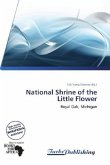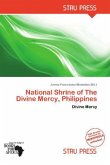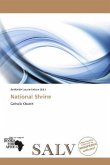Shrines in Pakistan are complex social institutions with number of characteristics which bring people together despite cultural and geographical diversity that exists in their individual backgrounds. The Shrines have an internal organization, usually led by a Pir, besides a number of functionaries necessary for carrying out the diverse activities of the shrine. In this way, the shrines have the capability of making a positive contribution in the integration and unity of Pakistani society. The present book is based on the ethnographic study of the Shrine of Pir Mehr Ali Shah, located in the village of Golra Sharif in Islamabad, Pakistan. The operation of the shrine's activities and its increasing popularity among the people can be explained in terms of satisfaction of the religious, psychological, social, economic and political needs of the followers and the associated communities.
Bitte wählen Sie Ihr Anliegen aus.
Rechnungen
Retourenschein anfordern
Bestellstatus
Storno








